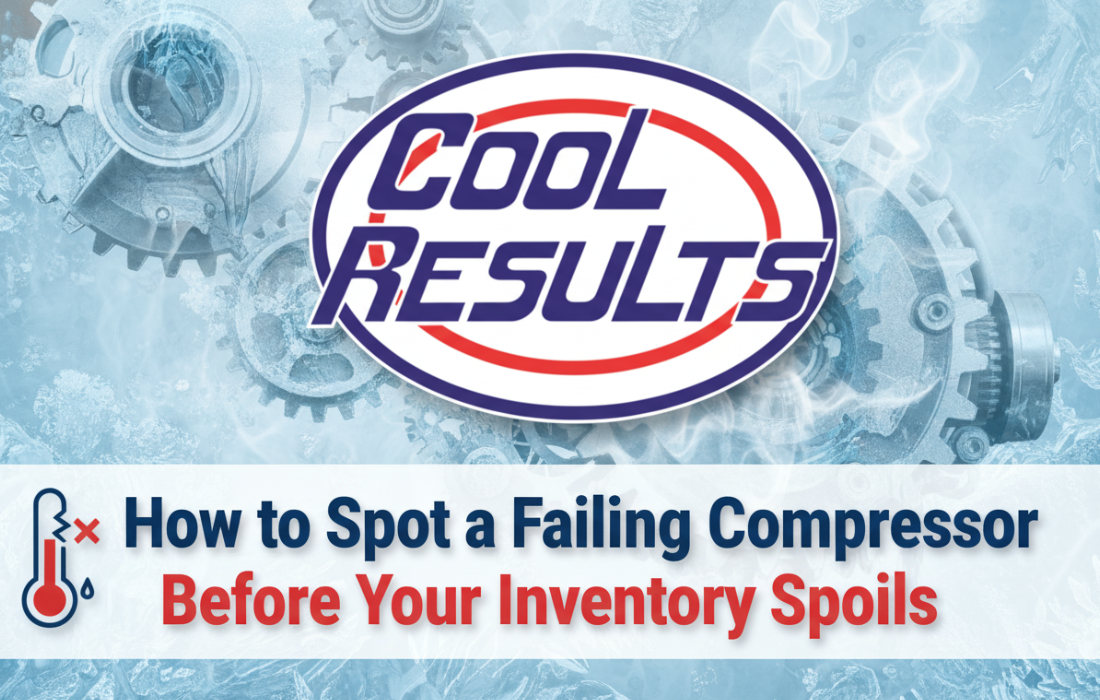In a commercial kitchen or storage‐facility, the compressor in your fridge or freezer is the beating heart of your operation. But when that heart starts to falter, things can go from “all good” to “inventory nightmare” fast.
Dealing with commercial refrigerator compressor problems isn’t just about cooling; it’s about protecting your food, your reputation, your bottom line. In Houston’s demanding environment, recognizing trouble early gives you time to act.
Let’s dive into what the compressor actually does, how to spot its decline, and how you can extend its life with smart action.
What a Compressor Does in Your Commercial Fridge
Think of the compressor as the central pump in your refrigeration system. It pressurizes the refrigerant gas, pushing it through the condenser, evaporator and back, removing heat and creating the cold you rely on. Without it working properly, you’ll see major effects:
- Reduced cooling or inability to reach set temperature.
- Increased energy usage and strain on the system.
- The system working harder, longer, or cycling erratically.
When a compressor starts failing, all of these signs begin to show up, and your risk of product loss rises with each passing day.
Audible and Visual Signs of Compressor Issues
Monitoring your equipment regularly can give you early clues of impending failure. Here are key indications of commercial refrigerator compressor problems to watch:
Loud or Unusual Noises
- Humming, buzzing, knocking, or constant high pitched sounds = possible failing bearings or internal damage.
- Clicking or frequent starts/stops = trouble with the start relay or the compressor is unable to kick in.
Visual & Operational Clues
- The refrigeration unit is not cooling properly or is running slower than normal.
- Heat radiating from the compressor housing, an unusually warm condensing area.
- Ice/ frost buildup on evaporator or coils (often because compressor isn’t keeping system balanced).
- The unit trips breakers or draws excessively high current, which signals the compressor is struggling.
Spotting one or more of these signs means you’re dealing with commercial refrigerator compressor problems, and the risk of full failure, and cost of inventory loss is real.
Temperature Irregularities to Watch For
Beyond noises and visuals, what your product temperature does matters. Because the compressor drives the cooling cycle, when it’s failing you’ll see:
- Warm zones inside your fridge or freezer where there used to be consistent cold.
- Sudden spikes in temperature despite thermostat settings being unchanged.
- Longer than usual times to recover temperature after loading the unit.
- The unit may run nearly constantly but never reach target temp, classic sign of a compressor struggling.
These temperature issues stem directly from commercial refrigerator compressor problems and should trigger immediate investigation.
Diagnosing vs Delaying: Why Quick Action Matters
Delaying action is one of the biggest mistakes owners make. Once you see the early signs, waiting will only escalate:
- A failing compressor may cause damage to the entire refrigeration system (coils, fans, refrigerant lines), which means more cost and downtime.
- The risk to product spoilage grows by the hour, especially in food service, where cold chain integrity is vital.
- Energy costs will climb as the system runs inefficiently, adding cost to your losses.
- In Houston’s heat and humidity, a compromised compressor works far harder, so failure can become abrupt.
So yes, immediate response is critical. If you suspect trouble, call a certified technician for compressor analysis and potential replacement before the inventory goes bad.
How to Extend the Life of Your Compressor
Prevention is always better than emergency repair. Here’s how you mitigate commercial refrigerator compressor problems proactively:
- Regular maintenance: Schedule preventive service for condenser coil cleaning, fan inspection, refrigerant checks. Dirty coils = compressor working harder.
- Monitor electrical load: Keep an eye on compressor start current and runtime. Unusual trends mean trouble.
- Ensure proper ventilation: Make sure equipment has clearance and airflow to avoid overheating.
- Check door seals and insulation: Warm air infiltration causes the compressor to strain.
- Use smart alarms or monitoring: When compressor is working overtime or temp is drifting, get alerts early.
- Plan for timely replacement: If compressor is old, overworked or has had frequent service, proactively scheduling replacement can be more cost‑effective than reacting to a breakdown.
By staying ahead of failure, you reduce risk, salvage value and protect your business.
Don’t wait until your stock is ruined. Trust Cool Results for fast, expert service that handles commercial refrigerator compressor problems before they cost you major losses. Request Service
Conclusion
Your commercial freezer or fridge may look fine, but when the compressor is failing, things go bad fast. Recognizing and acting on commercial refrigerator compressor problems early isn’t just smart, it’s essential for protecting your inventory, budget, and credibility.
With the right maintenance, monitoring and expert partnership (like Cool Results in Houston), you reduce risk, extend equipment life and ensure your cooling system stays reliable when you need it most. Don’t wait until it’s too late; take action now.
Visit Cool‑Results.com to schedule your inspection today.
FAQs About Commercial Refrigerator Compressor Problems
Q1. What are signs of bad fridge compressor?
Unusual noises, failure to reach temperature, longer run times, breaker trips, and heat at the compressor housing.
Q2. What should I do if my refrigeration unit is not cooling?
Check for coil cleanliness, airflow, door seal integrity and if those are okay, suspect compressor issues. Then call a technician for compressor repair Houston.
Q3. How urgent are compressor problems in a commercial setting?
Very urgent. Because the risk of product loss is high and the system will only degrade further if ignored. Proactive maintenance is key.
Q4. Can a noisy commercial fridge indicate compressor trouble?
Absolutely. LOUD humming, knocking, or continuous cycling often point to failing compressor components or overload conditions.

